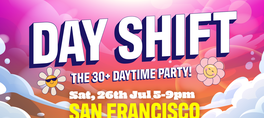Shawn Mullins Soul's Core Revival Tour 20th Anniversary double album coming in July
SEE EVENT DETAILSShawn Mullins
Singer-songwriter Shawn Mullins readily admits that several of the songs on his new album, My Stupid Heart, address his perceived relationship failures. In fact, many were written as he was falling out of his third marriage; in the title tune, he actually chides himself for being such a romantic. But it's also a bit of a joke, he says, because he firmly believes in following his heart — no matter where it leads.
That oh-so-fallible, yet essential part of our being is, it turns out, the guiding force behind just about every song on the album — the theme of which, he says, is summed up most succinctly by another song title: "It All Comes Down to Love."
In that respect, Mullins says, it's not all that different from most of his discography — which includes 1998's Soul's Core, the album that shot him to fame on the strength of its Grammy- nominated No. 1 hit, "Lullaby," and 2006's 9th Ward Pickin' Parlor, which contained his AAA/Americana No. 1, "Beautiful Wreck." (He also co-wrote the Zac Brown Band's No. 1 country tune, "Toes.") But in the years since his last release, 2010's Light You Up, Mullins has experienced more ups and downs on his romantic roller-coaster — a ride he's decided to step off for a while. He's also stayed busy co-parenting his son, Murphy, with his second wife.
Still, nothing inspires songwriters quite like a breakup, and Mullins confirms, "This record came out of all that; all the feelings, all the heartache."
He remembers sitting on his porch one afternoon, thinking, "'I know this is all in my head, but it'd be a lot easier just to blame it on my heart.' And then I thought, 'Yeah, it's my stupid heart.'" Next thing he knew, lines like "my stupid heart it plays for keeps/through hoops of fire it bounds and leaps" just started tumbling out. In the studio, the song took on a classic vibe, with impeccable instrumentation and production that sounds as if George Martin supervised.
In other words, it's gorgeous. And it carries a momentum that shifts it away from feeling like a woe-is-me wallow in self-pity. Throughout the album, Mullins deftly balances songs of suffering — from the title tune and "Go and Fall," to the powerful, yet subtle social commentary of "Ferguson" (which contains no mention of guns or police officers) — with songs such as "Roll on By," co-written with Max Gomez, which strikes an upbeat note of hope.
There's humor, too. Sure, much of it is wrapped in sardonic cynicism; "It all Comes Down to Love" targets TV preachers, politicians, the NRA, Wall Street and street dealers, and "Pre- Apocalyptic Blues" hilariously lampoons the doom-mongers arming themselves against Armageddon. But the Levon Helm-influenced "Never Gonna Let Her Go" reveals the thrills of riding that afore-mentioned roller-coaster, and even the sigh of resignation that is "The Great Unknown" contains lines so striking, you can't help but smile at their brilliance and depth. (Example: "They got a mirror back behind the whiskey shelves/Where we don't dare look back at ourselves.")
That song is one of several Mullins penned with his main songwriting collaborator, Chuck Cannon, who happens to be married to the album's producer, Lari White. They not only introduced him to the song's third author, Christina Aldendifer, but many of the album's players as well. (More about them later.) Cannon also co-wrote the title track, "Ferguson" and the deceptively shimmering "Go and Fall." Gomez is co-credited on the dramatic "Gambler's Heart"; Patrick Blanchard shares authorship of another character-based song, "Sunshine."
Whether composing alone or with others — including Matthew Sweet and Pete Droge, his bandmates in the early-2000s trio the Thorns — Atlanta native Mullins has always been a dynamic songsmith. Forging influences from folk and R&B to traditional country and even Broadway musicals (the funky ones, like Jesus Christ Superstar and Godspell) with pop-leaning melodic sensibilities, he crafts memorable, affecting tunes best defined as Americana.
Mullins' maternal grandfather was a big-band bass player who also played Dixieland jazz and polka; his paternal grandfather, a railroad man, loved listening to Jimmie Rodgers and Hank Williams. When Mullins was in the womb, his mom serenaded him with "House of the Rising Sun" and "Ode to Billie Joe," accompanying herself on ukulele. (To this day, he has a thing for Bobbie Gentry.) His dad's record and reel-to-reel collection ranged from Kris Kristofferson and Leonard Cohen to Little Richard, Ray Charles and Isaac Hayes, plus plenty of rock 'n' roll. It all made an impact.
With a supple baritone that still allows him to channel Prince, as well as wail the blues and growl with grit — not to mention rock those talkin' rhythms — Mullins has been engaging audiences since he won his first high-school talent contest with his own composition. That $100 check lodged a little lightbulb in his brain. It clicked on when he heard a career-class talk by Amy Ray, then an Emory University freshman but already performing with Emily Saliers (just before they became Indigo Girls).
"She played a few songs and talked about being a performing songwriter," he recalls. "It helped me focus, because she was so engaging and intense and punk, yet able to perform just with a guitar and her voice. I wanted to be just like her."
Mullins majored in music education at North Georgia College, where he began performing in earnest and released his first album (cassette, actually) of originals. After graduating, he served in the U.S. Army Reserves at Fort Benning, Georgia, where he jumped out of a few airplanes before jumping full-time into music in 1992. Eventually, he formed his own label, and in 1998, he released Soul's Core. Steve Craig, a DJ at Atlanta's modern-rockish WNNX-FM, picked up on "Lullaby," spinning it on his "Locals Only" music show. He took it to program director Leslie Fram, who not only put it heavy rotation, but sent copies to a few dozen fellow PDs. Soon, Mullins was getting regular airplay on at least 15 stations. He went from modestly hoping sales might reach 20,000 units, far beyond his four-digit average, to moving 30,000 copies per week, on his way to platinum status.
Labels that had ignored his earlier efforts to get their attention suddenly clamored to sign him; at least 25 came knocking. Columbia won the bidding war; Mullins spent six years there before moving to Vanguard, which recently joined forces with Rounder/Sugar Hill under the Concord Music Group umbrella.
When Chuck Cannon heard "Lullaby" on a Nashville station, he actually did a U-turn and beelined toward a record store. Cannon, who co-wrote John Michael Montgomery's Academy of Country Music Song of the Year, "I Love the Way You Love Me," and several hits for Toby Keith, among other country stars, loved Mullins' work. But when Mullins heard Cannon was slated to open for him at a Nashville club, he thought the pairing was a total mismatch. Until Cannon played.
"Chuck's got a lot more edge than a lot of other Nashville songwriters, and a lot more rock 'n' roll and R&B," Mullins says. "There's a lot more sex in his writing, there's a lot more devil and God, and he just brings some real basic elements of the human existence more into the forefront. A lot of people don't have the guts to do it, and I love that about him."
Cannon wrote "It all Comes Down to Love," the album's only cover. It was his attempt to write in Mullins' style —16 years ago, after he'd heard "Lullaby." He'd also engineered that opening slot so he could meet Mullins — who didn't know any of the song's back-story till he asked about using it for the album. Once he heard it, he was even more determined to include it.
"I usually do one song per record I didn't write; just a song I like a lot that someone else wrote," Mullins says. "It motivates me to write more, because it's something that I wish I'd written." (That's Mullins' kid — and his beagle —on the intro.)
Cannon had even demoed it with many of the same players who perform it on the album. (They include bassist Michael Rhodes, drummer Gerry Hansen, electric guitarists Jerry McPherson and Tom Bukovac, pianist/accordionist Radoslav Lorkovic, pianist Matt Rollings, steel guitarist Dan Dugmore, bouzouki/mandolin player Guthrie Trapp, cellist Austin Hoke, and backing vocalists Tom Ryan, Max Gomez and Cannon, who also plays bouzouki and guitar. Ryan, who co-wrote "Pre-Apocalyptic Blues" while performing with Mullins at the 30A Songwriters Festival, also plays sax on the rousing New Orleans/Dixieland rave-up, next to trombonist Roy Agee.)
In addition to his collaborations for this album, Mullins spent some of his time since Light You Up writing with other Nashville hitmakers; he also contributed to the striking 2012 album, Mercyland: Songs for the Rest of Us. But he admits he's eager to hit the road again.
"I'm in a new place in my life, a place of freedom, artistically — and a real grounded place of bein' a dad," he says. "I'm really excited about the possibilities."
Though he may be wearing a little more emotional armor this time, he's also armed with new insights, so many of which are relayed in these songs. And when he steps onstage each night, he sings them with all the passion he's got in his anything-but-stupid heart.
Shawn Mullins
Singer-songwriter Shawn Mullins readily admits that several of the songs on his new album, My Stupid Heart, address his perceived relationship failures. In fact, many were written as he was falling out of his third marriage; in the title tune, he actually chides himself for being such a romantic. But it's also a bit of a joke, he says, because he firmly believes in following his heart — no matter where it leads.
That oh-so-fallible, yet essential part of our being is, it turns out, the guiding force behind just about every song on the album — the theme of which, he says, is summed up most succinctly by another song title: "It All Comes Down to Love."
In that respect, Mullins says, it's not all that different from most of his discography — which includes 1998's Soul's Core, the album that shot him to fame on the strength of its Grammy- nominated No. 1 hit, "Lullaby," and 2006's 9th Ward Pickin' Parlor, which contained his AAA/Americana No. 1, "Beautiful Wreck." (He also co-wrote the Zac Brown Band's No. 1 country tune, "Toes.") But in the years since his last release, 2010's Light You Up, Mullins has experienced more ups and downs on his romantic roller-coaster — a ride he's decided to step off for a while. He's also stayed busy co-parenting his son, Murphy, with his second wife.
Still, nothing inspires songwriters quite like a breakup, and Mullins confirms, "This record came out of all that; all the feelings, all the heartache."
He remembers sitting on his porch one afternoon, thinking, "'I know this is all in my head, but it'd be a lot easier just to blame it on my heart.' And then I thought, 'Yeah, it's my stupid heart.'" Next thing he knew, lines like "my stupid heart it plays for keeps/through hoops of fire it bounds and leaps" just started tumbling out. In the studio, the song took on a classic vibe, with impeccable instrumentation and production that sounds as if George Martin supervised.
In other words, it's gorgeous. And it carries a momentum that shifts it away from feeling like a woe-is-me wallow in self-pity. Throughout the album, Mullins deftly balances songs of suffering — from the title tune and "Go and Fall," to the powerful, yet subtle social commentary of "Ferguson" (which contains no mention of guns or police officers) — with songs such as "Roll on By," co-written with Max Gomez, which strikes an upbeat note of hope.
There's humor, too. Sure, much of it is wrapped in sardonic cynicism; "It all Comes Down to Love" targets TV preachers, politicians, the NRA, Wall Street and street dealers, and "Pre- Apocalyptic Blues" hilariously lampoons the doom-mongers arming themselves against Armageddon. But the Levon Helm-influenced "Never Gonna Let Her Go" reveals the thrills of riding that afore-mentioned roller-coaster, and even the sigh of resignation that is "The Great Unknown" contains lines so striking, you can't help but smile at their brilliance and depth. (Example: "They got a mirror back behind the whiskey shelves/Where we don't dare look back at ourselves.")
That song is one of several Mullins penned with his main songwriting collaborator, Chuck Cannon, who happens to be married to the album's producer, Lari White. They not only introduced him to the song's third author, Christina Aldendifer, but many of the album's players as well. (More about them later.) Cannon also co-wrote the title track, "Ferguson" and the deceptively shimmering "Go and Fall." Gomez is co-credited on the dramatic "Gambler's Heart"; Patrick Blanchard shares authorship of another character-based song, "Sunshine."
Whether composing alone or with others — including Matthew Sweet and Pete Droge, his bandmates in the early-2000s trio the Thorns — Atlanta native Mullins has always been a dynamic songsmith. Forging influences from folk and R&B to traditional country and even Broadway musicals (the funky ones, like Jesus Christ Superstar and Godspell) with pop-leaning melodic sensibilities, he crafts memorable, affecting tunes best defined as Americana.
Mullins' maternal grandfather was a big-band bass player who also played Dixieland jazz and polka; his paternal grandfather, a railroad man, loved listening to Jimmie Rodgers and Hank Williams. When Mullins was in the womb, his mom serenaded him with "House of the Rising Sun" and "Ode to Billie Joe," accompanying herself on ukulele. (To this day, he has a thing for Bobbie Gentry.) His dad's record and reel-to-reel collection ranged from Kris Kristofferson and Leonard Cohen to Little Richard, Ray Charles and Isaac Hayes, plus plenty of rock 'n' roll. It all made an impact.
With a supple baritone that still allows him to channel Prince, as well as wail the blues and growl with grit — not to mention rock those talkin' rhythms — Mullins has been engaging audiences since he won his first high-school talent contest with his own composition. That $100 check lodged a little lightbulb in his brain. It clicked on when he heard a career-class talk by Amy Ray, then an Emory University freshman but already performing with Emily Saliers (just before they became Indigo Girls).
"She played a few songs and talked about being a performing songwriter," he recalls. "It helped me focus, because she was so engaging and intense and punk, yet able to perform just with a guitar and her voice. I wanted to be just like her."
Mullins majored in music education at North Georgia College, where he began performing in earnest and released his first album (cassette, actually) of originals. After graduating, he served in the U.S. Army Reserves at Fort Benning, Georgia, where he jumped out of a few airplanes before jumping full-time into music in 1992. Eventually, he formed his own label, and in 1998, he released Soul's Core. Steve Craig, a DJ at Atlanta's modern-rockish WNNX-FM, picked up on "Lullaby," spinning it on his "Locals Only" music show. He took it to program director Leslie Fram, who not only put it heavy rotation, but sent copies to a few dozen fellow PDs. Soon, Mullins was getting regular airplay on at least 15 stations. He went from modestly hoping sales might reach 20,000 units, far beyond his four-digit average, to moving 30,000 copies per week, on his way to platinum status.
Labels that had ignored his earlier efforts to get their attention suddenly clamored to sign him; at least 25 came knocking. Columbia won the bidding war; Mullins spent six years there before moving to Vanguard, which recently joined forces with Rounder/Sugar Hill under the Concord Music Group umbrella.
When Chuck Cannon heard "Lullaby" on a Nashville station, he actually did a U-turn and beelined toward a record store. Cannon, who co-wrote John Michael Montgomery's Academy of Country Music Song of the Year, "I Love the Way You Love Me," and several hits for Toby Keith, among other country stars, loved Mullins' work. But when Mullins heard Cannon was slated to open for him at a Nashville club, he thought the pairing was a total mismatch. Until Cannon played.
"Chuck's got a lot more edge than a lot of other Nashville songwriters, and a lot more rock 'n' roll and R&B," Mullins says. "There's a lot more sex in his writing, there's a lot more devil and God, and he just brings some real basic elements of the human existence more into the forefront. A lot of people don't have the guts to do it, and I love that about him."
Cannon wrote "It all Comes Down to Love," the album's only cover. It was his attempt to write in Mullins' style —16 years ago, after he'd heard "Lullaby." He'd also engineered that opening slot so he could meet Mullins — who didn't know any of the song's back-story till he asked about using it for the album. Once he heard it, he was even more determined to include it.
"I usually do one song per record I didn't write; just a song I like a lot that someone else wrote," Mullins says. "It motivates me to write more, because it's something that I wish I'd written." (That's Mullins' kid — and his beagle —on the intro.)
Cannon had even demoed it with many of the same players who perform it on the album. (They include bassist Michael Rhodes, drummer Gerry Hansen, electric guitarists Jerry McPherson and Tom Bukovac, pianist/accordionist Radoslav Lorkovic, pianist Matt Rollings, steel guitarist Dan Dugmore, bouzouki/mandolin player Guthrie Trapp, cellist Austin Hoke, and backing vocalists Tom Ryan, Max Gomez and Cannon, who also plays bouzouki and guitar. Ryan, who co-wrote "Pre-Apocalyptic Blues" while performing with Mullins at the 30A Songwriters Festival, also plays sax on the rousing New Orleans/Dixieland rave-up, next to trombonist Roy Agee.)
In addition to his collaborations for this album, Mullins spent some of his time since Light You Up writing with other Nashville hitmakers; he also contributed to the striking 2012 album, Mercyland: Songs for the Rest of Us. But he admits he's eager to hit the road again.
"I'm in a new place in my life, a place of freedom, artistically — and a real grounded place of bein' a dad," he says. "I'm really excited about the possibilities."
Though he may be wearing a little more emotional armor this time, he's also armed with new insights, so many of which are relayed in these songs. And when he steps onstage each night, he sings them with all the passion he's got in his anything-but-stupid heart.
show less









